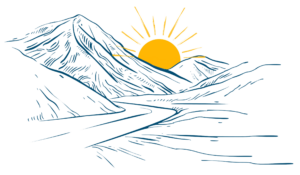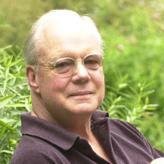The Fallacy of Rugged Individualism
“So we are called to wholeness and simultaneously to recognition of our incompleteness; called to power and to acknowledge our weakness; called to both individuation and interdependence. Thus the problem – indeed, the total failure – of the “ethic” of rugged individualism is that it runs with only one side of this paradox, incorporates only one half of our humanity. It recognizes that we are called to individuation, power, and wholeness. But it denies entirely the other part of the human story: that we can never fully get there and that we are, of necessity in our uniqueness, weak and imperfect creatures who need each other.”
—M. Scott Peck, 1987
The Different Drum: Community Making and Peace

Today’s Invitation
If the ethic of “rugged individualism” is part of your culture, consider how it has impacted your life. Today, ask for help with something.

Query of the Week
Who belongs in Quaker community?
How does the intentional lack of a creed make belonging easier? Harder?





